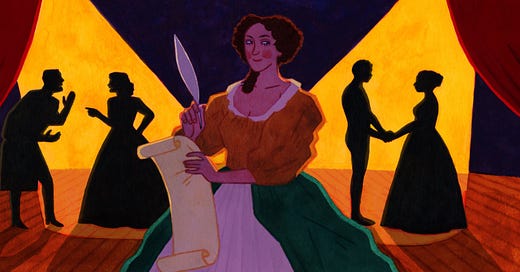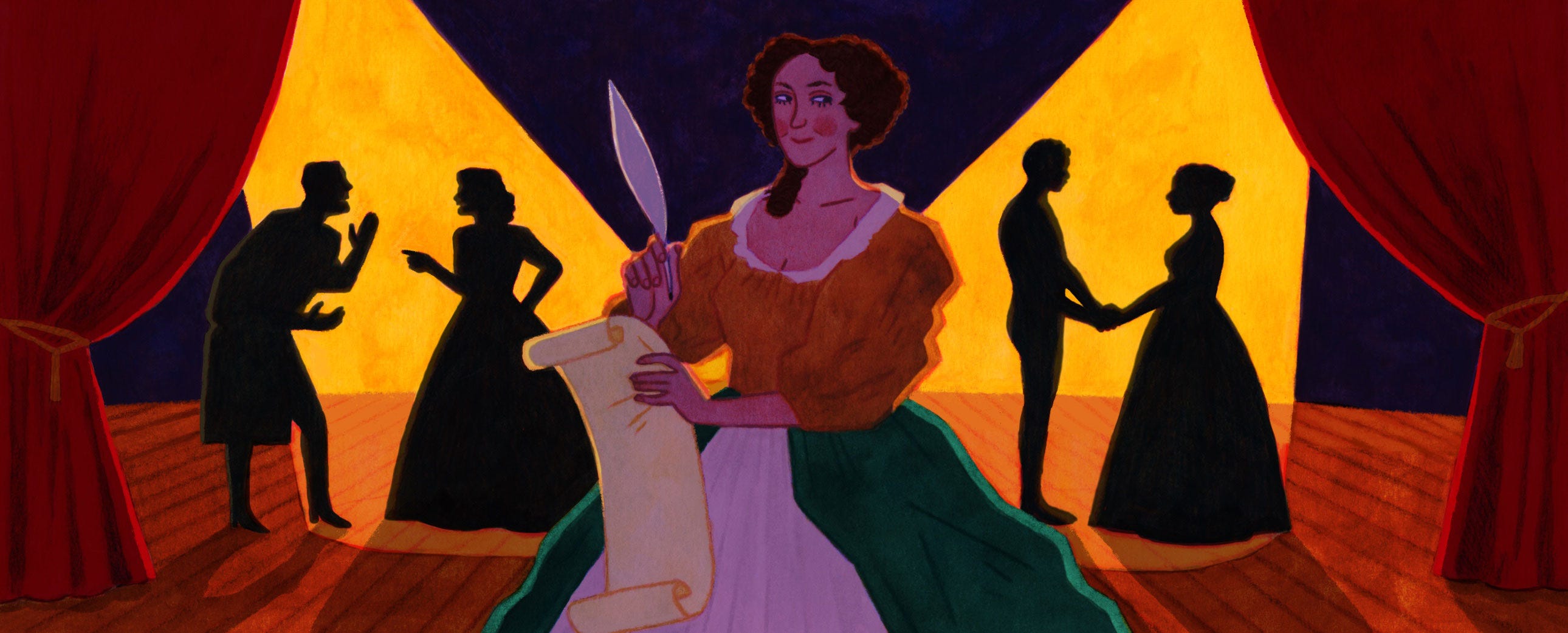The Royal Spy Who Became the Feminist Answer to Shakespeare
Aphra Behn was the first English woman in history to work as a professional writer. The only thing more colorful than her boundary-pushing stories was her own secretive life.
In 1695, theater audiences in Britain were riveted by the debut of a tale about two star-crossed lovers. After a bloody two-year war, Prince Oroonoko went to pay his respects to Imoinda, the daughter of a general who had died during the war. He brought slaves with him as a gift for the deceased general’s daughter, “trophies of her father’s victories.” Upon meeting the charming and beautiful Imoinda, Prince Oroonoko promptly fell in love. The two were engaged to be married, until Oroonoko’s grandfather, the King of Coromantee — in modern-day Ghana — became smitten with Imoinda as well. The elderly king, who already had many wives, moved Imoinda into his harem and decreed that she was to marry him.
Deeply in love, Oroonoko and Imoinda still consummated their relationship, despite the risk of angering Oroonoko’s grandfather. One of the king’s wives, Onahal, even helped them. After learning of the two lovers’ actions, the enraged king gave an “order they should be both sold off as slaves to another country.” The king eventually forgave his grandson Oroonoko, but the prince was still tricked into becoming a slave for European settlers across the Atlantic in Suriname, then known as Surinam, a small country in South America that had been colonized by the Dutch.
Imoinda, like her lost love, was sent to Suriname as well. The lovers eventually reunited on a plantation, where the two rekindled their love under the names Caesar and Clemene. They finally wed, and “there was as much magnificence as the country could afford at the celebration of this wedding.” However, just as their relationship had started with violence, it would end in violence as well. After a slave revolt, knowing that they would both likely die at the hands of their enemy, Oroonoko killed Imoinda, and he himself was soon killed by slavers.
The stirring saga comes from Aphra Behn’s book Oroonoko: or, the Royal Slave, which was also adapted into a popular play. Behn attested that it was inspired by a true story, Oroonoko and Imoinda were real people who lived in Suriname, and that Behn had met Oroonoko in her “travels to the other world.” There is debate about whether parts of Oroonoko were indeed based in reality, or if it was a complete work of fiction, penned to support the growing abolitionist sentiment in England at the time.
Whether fact or fiction, the story of Oroonoko was a hit in Britain. But few knew that the author’s life was perhaps even more extraordinary than those of her characters. Having come from a poor family, Behn became a spy for the English King Charles II, who sent her to Antwerp during the Second Anglo-Dutch War. She received little to no pay from King Charles, so to make ends meet Behn became a writer. She is often credited with being the first professional female writer in England. If not the first, Behn was one of the first women anywhere in the world to make a living as a writer. And her work, just like her life, pushed conventions about what was expected for women and other marginalized people in the 17th century.
Keep reading with a 7-day free trial
Subscribe to Narratively to keep reading this post and get 7 days of free access to the full post archives.





